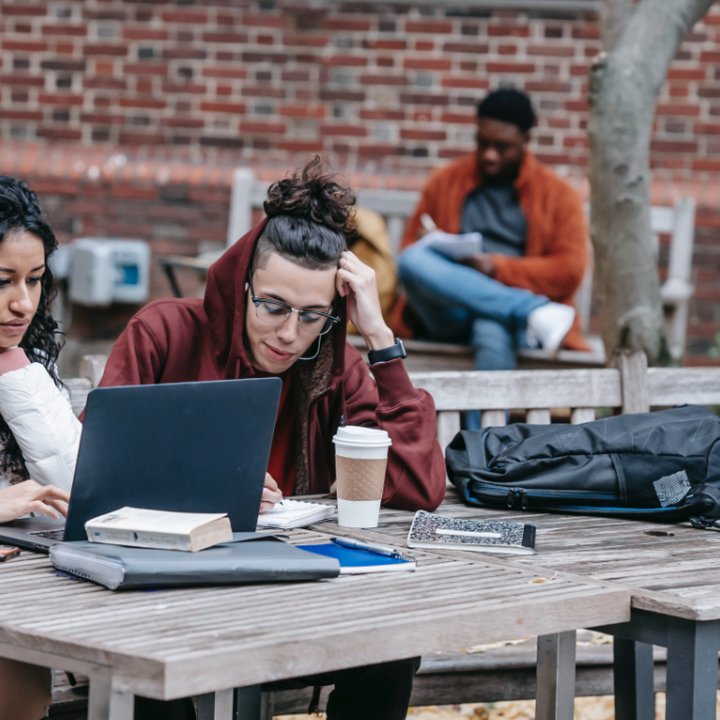How Langchain Can Revolutionize LLM Development in EdTech
In the fast-evolving landscape of Artificial Intelligence today, large language models (LLMs) take center stage.
Sept. 25, 2023

The traditional paradigms of education, with their inflexible structures and rigid curricula, may no longer fully meet the evolving needs of learners in the 21st century.
As the educational landscape evolves to meet the changing needs of learners, innovative approaches and global initiatives are at the forefront.
Virtual Exchange Programs: Geographical barriers are being dismantled through virtual exchange programs. These initiatives allow students to connect and collaborate with peers worldwide through online platforms and video conferencing. This cost-effective approach fosters intercultural understanding and global citizenship, transforming education into a borderless experience.
Example: Erasmus+ Virtual Exchange is a notable example of a virtual exchange program. This initiative enables students and youth from diverse countries to connect and collaborate through online platforms and joint projects. Participants engage in discussions, share cultural experiences, and expand their knowledge without leaving their homes, fostering intercultural understanding and global citizenship. Erasmus+ Virtual Exchange serves as a model for how such programs can transform education into a borderless, inclusive, and enriching experience for participants worldwide.
International Partnerships: Educational institutions are increasingly forming international partnerships and alliances. These collaborations facilitate student and faculty exchanges, joint research projects, and curriculum development, enriching the educational experience and promoting global perspectives.
Example: The Fulbright Program: a well-known initiative that promotes educational and cultural exchange between the United States and various countries worldwide. Through this program, students, scholars, and professionals have the opportunity to study, teach, and conduct research abroad. For instance, a student from India can apply for a Fulbright scholarship to pursue a master's degree in the United States. This partnership fosters not only academic collaboration but also cultural understanding as students and scholars immerse themselves in different educational systems and societies. It's a prime example of how international partnerships enhance educational experiences and promote global perspectives.
Global Learning Networks: Online platforms and networks are enabling global collaboration among students and educators. They facilitate the sharing of resources, knowledge, and best practices, fostering cross-border cooperation in education.
Example: Global Nomads Group is a U.S.-based nonprofit organization that connects students around the world through interactive videoconferencing and virtual exchange programs. Students from different countries can engage in dialogues, discussions, and collaborative projects on various global issues. For example, American students can participate in virtual exchanges with peers in the Middle East to discuss topics such as cultural diversity and global citizenship. This initiative fosters cross-cultural understanding and provides students with a platform to share perspectives and ideas globally, contributing to a more interconnected and globally aware generation.

As we chart the course forward, addressing educational inequalities and ensuring inclusive access to quality education is paramount. Several strategies and initiatives are instrumental in achieving this goal:
Education plays a very important role in reducing inequalities and fostering inclusive and democratic societies. However, challenges persist in maintaining trust in education systems. It's essential to emphasize education's role in instilling shared values, tolerance, and civic engagement, contributing to the development of a new social contract.
Innovation in education is pivotal for improving outcomes, cost-efficiency, and equity. A robust knowledge system, informed by research and data, is essential, as is the ability to learn from both successful and failed innovations.
The digital revolution is reshaping education. Technologies like AI, cloud computing, and virtual reality are fundamentally changing the way we learn and work. Harnessing the benefits of digital transformation requires equipping learners with media and digital literacy skills and emphasizing critical thinking.

The growth of a "science of learning," informed by cognitive psychology, neuroscience, and social psychology, offers opportunities to rethink the design and delivery of education. Education is no longer just about imparting knowledge; it's about equipping learners with the skills and mindset to thrive in a complex and uncertain world.
The Global Partnership for Education Knowledge and Innovation Exchange (KIX) stands as a global response to these challenges. With a substantial budget, KIX supports the scaling of promising education innovations and strengthens partners' capacity to address these challenges. KIX represents a beacon of hope, bridging knowledge gaps, improving access to evidence, and fostering innovation in education systems across low- and middle-income countries.
This transformative endeavor operates on several key principles.
It is built upon a foundation of collaboration, uniting governments, organizations, researchers, and educators in a collective effort to drive progress in education. KIX also places a strong emphasis on evidence-based practices, recognizing that informed decisions are pivotal for lasting change. By facilitating research, knowledge sharing, and capacity-building, it empowers education stakeholders to make well-informed choices and implement effective strategies.
Moreover, KIX champions the scaling of innovative solutions, recognizing that promising practices often need support to reach their full potential. Through strategic funding and partnership-building, it catalyzes the expansion of initiatives that have demonstrated positive impact at a smaller scale. This approach ensures that impactful innovations can benefit a broader audience, ultimately contributing to the enhancement of education on a global scale.
Education is no longer just about imparting knowledge; it's about equipping learners with the skills and mindset to thrive in a complex and uncertain world. Initiatives like KIX exemplify the transformative power of global partnerships in paving the way for inclusive and quality education worldwide. Through continued collaboration and innovation, we can build a brighter future for learners worldwide and work towards achieving the goal of ensuring inclusive and equitable quality education for all.